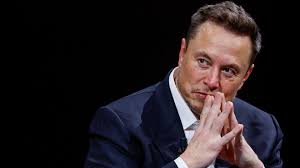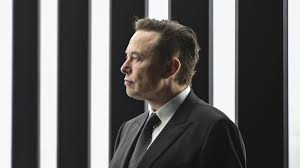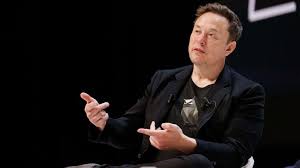Elon Musk donates $2,500 to the Transgender Law Center, showing his support for transgender rights and advocacy

Elon Musk Donates $2,500 to the Transgender Law Center: A Step Toward Advocacy and Inclusion
1. A Surprising Move From a Controversial Figure
In a move that has sparked conversation across political and social circles, tech mogul Elon Musk recently made a $2,500 donation to the Transgender Law Center, one of the most prominent organizations advocating for the rights of transgender and gender-nonconforming people in the United States. While the donation may not be large by Musk’s billionaire standards, its symbolic significance has resonated powerfully. Known for his unpredictable public persona and controversial online statements, Musk’s contribution comes as a surprising twist in the narrative surrounding his stance on social justice issues.
Over the years, Musk has made headlines not only for his technological innovations—through Tesla, SpaceX, Neuralink, and The Boring Company—but also for his polarizing comments on social media. His remarks on pronouns and gender identity in particular have drawn criticism and sparked debate among LGBTQ+ activists and supporters. However, this recent act of financial support may indicate a shift in tone or an effort to reconcile past controversies with a more inclusive approach to advocacy.
According to a spokesperson for the Transgender Law Center, the organization was “grateful for the contribution, regardless of amount,” noting that “support from influential individuals, especially those with large platforms, can help highlight the importance of protecting trans rights in a time of rising threats.” The spokesperson declined to comment on Musk’s motives but emphasized that every donation helps fuel the center’s critical legal work, policy development, and community engagement.
This gesture, while small in dollar value compared to Musk’s massive fortune, signals a potential evolution in how public figures interact with marginalized communities. It also prompts deeper reflection on the role of celebrity philanthropy in driving social change, even when the giver’s past positions may appear at odds with their present actions.
2. The Transgender Law Center: Fighting for Justice, One Case at a Time
Founded in 2002 and based in Oakland, California, the Transgender Law Center (TLC) is the largest trans-led organization in the United States advocating for the rights of transgender and gender-nonconforming individuals. Over the past two decades, TLC has built a powerful legal infrastructure to defend the civil liberties, health access, and safety of trans people—particularly those who face compounded discrimination due to race, immigration status, and economic instability.
The organization’s core work includes legal advocacy, litigation, public education, and movement building. Notably, TLC has led numerous high-impact lawsuits challenging transphobic policies, discriminatory healthcare practices, and systemic violence in prisons and immigration detention centers. Through programs like the Positively Trans initiative (focused on trans people living with HIV) and the Black Trans Circles project, TLC centers the leadership of Black, Brown, and low-income trans people in creating solutions to complex issues.
The nonprofit operates on a relatively modest budget compared to national LGBTQ+ organizations, relying heavily on individual donations, grants, and community support. This makes contributions—even small ones—important to sustaining daily operations and expanding reach. According to TLC’s latest annual report, 85% of their funding goes directly into program services, a sign of fiscal responsibility and focus on mission.
In recent years, the Transgender Law Center has stepped into the spotlight more frequently, especially as trans communities face increasing legal attacks in state legislatures across the U.S. From anti-trans sports bans to laws restricting gender-affirming care for youth, the urgency of their work has never been greater. As the legal and political landscape becomes more hostile, TLC’s efforts provide not only defense but hope.
Musk’s donation, while unexpected, brings new attention to the organization. In the best-case scenario, this publicity could inspire other donors—especially those from Silicon Valley or the tech industry—to support the center’s work and engage more deeply with LGBTQ+ issues.
3. Elon Musk’s Complex Relationship with the LGBTQ+ Community
Elon Musk’s relationship with the LGBTQ+ community has been, at best, complicated. On one hand, Tesla has consistently scored high on the Human Rights Campaign’s Corporate Equality Index, which rates companies on their policies and practices related to LGBTQ+ equality. Tesla offers inclusive health benefits, non-discrimination policies, and employee resource groups that support LGBTQ+ staff. On the other hand, Musk’s personal behavior—especially on social media—has not always aligned with these corporate values.
One notable example was his 2020 tweet mocking the use of pronouns in bios, which drew widespread backlash and was seen by many as transphobic. Musk’s then-partner, musician Grimes, attempted to mediate the fallout, suggesting Musk’s intentions were misinterpreted, but the damage to his public image among LGBTQ+ communities had already been done. Critics pointed out that jokes or dismissive comments from such an influential figure can have ripple effects, reinforcing stigma and emboldening hate.
Still, Musk is not easily categorized. His worldview often resists traditional political alignment. He has supported progressive causes—like climate action and universal basic income—while also embracing libertarian or conservative talking points on issues like government regulation and “woke culture.” This ideological fluidity can make it difficult to interpret any single act, including this recent donation.
Some LGBTQ+ advocates remain skeptical. “A $2,500 donation is a drop in the bucket for a man worth over $200 billion,” said one activist on X (formerly Twitter). “We need more than gestures—we need sustained allyship and accountability.”
Others, however, argue that incremental steps are meaningful, especially if they come with a willingness to learn and engage. “People evolve,” wrote another user in a viral thread. “If Musk is trying to grow, we should welcome that and keep pushing for more.”
Musk has not issued a public statement regarding the donation, which leaves the motivation open to interpretation. Was it a quiet effort to support an important cause, or a strategic move to reshape his public image? Either way, the act has reignited conversations about how influential individuals can use their resources to promote equality.
4. What This Means for the Future of Philanthropy and Advocacy
The intersection of billionaire philanthropy and social justice work is inherently complex. On one hand, financial contributions from ultra-wealthy individuals can supercharge movements and give nonprofits the resources they need to scale. On the other hand, critics often argue that such donations can be performative, insufficient, or strategically deployed to deflect criticism rather than catalyze real change.
Elon Musk’s $2,500 donation to the Transgender Law Center falls into a gray area. It’s small enough to avoid accusations of trying to “buy” redemption, but large enough to signal some level of intention. Whether this marks the beginning of a more consistent engagement with trans advocacy remains to be seen.
What’s clear is that even symbolic actions can have impact—especially when they bring visibility to underfunded organizations doing vital work. In a political climate where transgender people are being targeted by over 400 anti-trans bills in U.S. legislatures, any signal of support matters. A donation from someone as high-profile as Musk sends a message that trans rights deserve attention, even from the world’s most prominent business figures.
This event may also encourage a broader discussion within the tech industry. Silicon Valley has often positioned itself as progressive, but few major CEOs have made public gestures of support for trans communities. Musk’s action, no matter the motivation, could open the door for peers to follow suit—with either larger donations, public statements, or inclusive business practices.
Moreover, this incident challenges us all to consider the relationship between past behavior and future change. Can a person who once made hurtful comments become a true ally? Should we expect public figures to apologize, or is positive action enough? These are not easy questions, but they are necessary as we navigate a world where digital footprints are permanent and social issues are ever-evolving.
In the end, Musk’s donation may not solve the systemic challenges facing transgender people in America. But if it leads to more awareness, more support, and more sustained investment in justice, then it will have served a valuable purpose. Progress often comes not in grand gestures, but in the steady accumulation of small acts of courage, compassion, and change.









